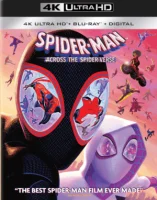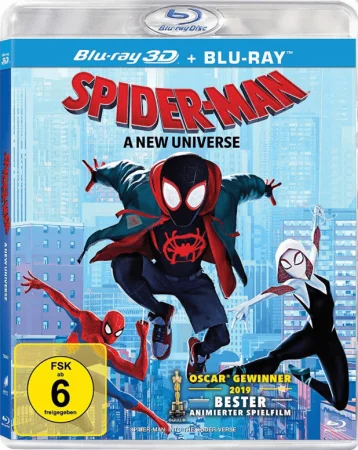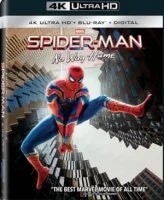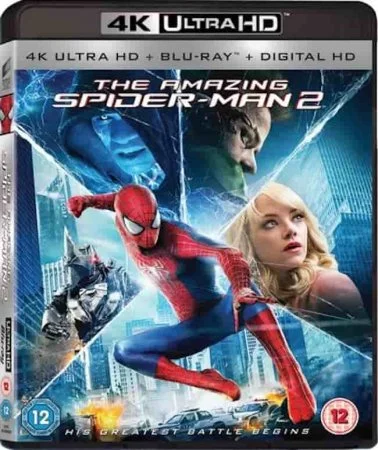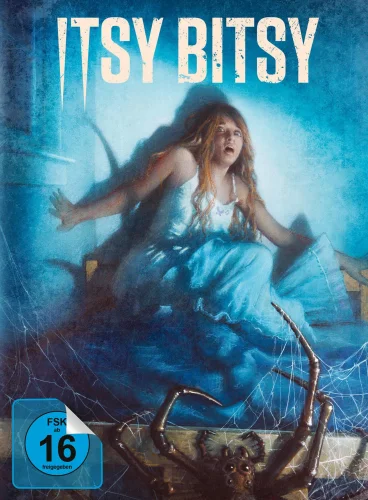Featured Movies
Spider 4K 2002 Ultra HD 2160p
Сountry: UK, Canada
Cast: Ralph Fiennes, Miranda Richardson, Gabriel Byrne, Lynn Redgrave, John Neville, Bradley Hall, Gary Reineke, Philip Craig, Cliff Saunders, Tara Ellis, Sara Stockbridge, Arthur Whybrow, Nicola Duffett, Jake Nightingale, Alison Egan, Donald Ewer, Joan Heney, Peter Elliott
The only thing worse than losing your sanity is finding it again.
Spider is a strange and lonely man. After a long stay in a mental institution, he returns to the streets of London's East End, where he grew up. The sounds and smells of these streets begin to awaken memories of his childhood from the depths of his subconscious. At the center of his memories is the emotional trauma of losing his mother to what he believes to be his father, Bill Clegg, a plumber, who murdered her so that her place in the house could be taken by Yvonne, a prostitute....
User Review
An ex-spiritual patient named Dennis Clegg, nicknamed “Spider” by his late mother, arrives in London like a dinghy that has been washed ashore on the shore of civilization by unknown forces. The metropolis is met with a mixture of indifferent faces, metal structures everywhere obscenely climbing on top of each other, and the destination is seen not as a quiet boarding house for the partially cured, but as a nesting place for the souls of the dead: Hunchbacked zombies with outlandish diagnoses shuffling from corner to corner, a mustachioed cook shaking ashes into a pot, and a snarky Ms. Wilkinson calling the shots, who in some places resembles the very one with whom Randall McMurphy once couldn't get along. Dennis smokes nervously and mentally revisits his childhood. There is his mother's radiant smile, his father's springy gait, the noise of the tavern, the cold darkness of the closet, the smell of damp earth. The fabric of time disintegrates into shreds, Dennis convulsively captures the running images with scribbles in his journal, somewhere in here it becomes clear that the doctors definitely rushed his discharge.
David Cronenberg, a convinced purist of film language, once again says a decisive “no!” to camerawork pirouettes, screening with frightening detachment mostly one catchy phrase from the hero's diary: “it's a gloomy, dreary morning again”. In the lens of the static camera, a shriveled shrubbery bends Rafe Fiennes, surrounded by hostile flakes of fog and a string of cutting hallucinations. The ancient Hitchcockian saspens-postulate about the viewer knowing more than the character is cleverly reshaped to fit the circumstances: we, like the Spider himself, are in deep ignorance, and the information builds up in flashes - scraps of phrases, rare visual details. The bartender of the local tavern closes the whole gestalt with a casual remark, one of the doctors almost gives away the denouement, Dennis continues wandering in the web of narrow streets, approaching the place of tragedy along the radial lines. And the protagonist is clearly no longer the Spider, but the existential Bastille he has built in his mind. Cronenberg moves the game into familiar territory, launching a kaleidoscope of near-Freudian projections: there is room for the Oedipus complex, and imaginary paternal brutality, as well as the worn-out logical proverb about lies, the consequences of which are always true.
Dennis's illness, however, if we take the source material by Patrick McGrath, may look spectacular, but it is staged by dry arithmetical methods with a bias toward shameless manipulativeness. There is no pulsing between the lines of the primal madness of Faulkner's Benjy, nor entertaining medical details, as in the case of the conventional Billy Milligan. The whole atmosphere rests on chronological cheating, a clever game of flashbacks, and McGrath more reminiscent of a craftsman assembler than a genuine painter of mental scars. However, the novel becomes extremely cinematic in the voiced conditions: all the glues and mise-en-scene are prescribed by a clear algorithm, the only thing missing is a flowchart in the margins. The weakest point comes in the last third of the story, where the stock of retrospections is depleted and the final twist is still far away - the author is stalling for time, mechanically stringing the same tropes. Cronenberg, who has always been not averse to chopping up the source texts into a vinaigrette (think of the polyvariant endings of The Fly), briefly discards the most boring part and softens the finale with a timid dotted line.
But it's much more interesting to wonder why the director even took up to screen “Spider”. It seems that he had enough of such a small thing as a collection of insects in the main character's room, not to mention the obsessive arachnological metaphor, but the point is different. French cultural critic Alain Badiou once called the main feature of the twentieth century “passion for the Real”: virtual tentacles have so tightly ringed the globe that the unfortunate homo sapiens every second yearns to touch the naked primary matter. David Cronenberg always made his movies about this - slimy outgrowths and vagina-like incisions literally manifest the longing for rough flesh. “Spider” in this perspective is closer to one of the first works of the Canadian, to ‘Brood’, where the chthonic anger of the mother generated Real mutant children, because Dennis Clegg in the chosen system of coordinates is a clot of matter with a flaw, the main idea of the source material resonates perfectly with the filmography. Thus, having screened far from the best of McGrath's novels, Cronenberg reached the ultimate point, completed the deconstruction of the man of the past century, transferring all mutations into the realm of consciousness.
It is all the more surprising that in the movie any corporeality is completely eliminated: yes, Spider wraps himself in newspapers, wears four shirts, squirms in the bathtub under a trickle of rusty water, but there is no hint of rotting alive or turning his intestines into a ball of worms. It's as if the director was afraid of his own reflection, afraid of where his own favorite methods were leading, and so he destroyed the evidence in time, staging an unadulterated psychological drama. It is not without reason that numerous interviews breed contradictions, either denying or recognizing the autobiographical nature. It is not for nothing that after “Existence” Cronenberg officially closed the portal to the world of bio-horror, and after “Spider” he ran away to genre cinema. Context aside, what we have here is a remarkably simple movie about an unhappy man who is tired of living in a world where the sun has had its throat slit and the smoky stars howl with hopelessness. Unable to bear the cackling of the electric light bulb, painful to touch the taunting shadows in the attic, no strength to endure the endless weight of the leaden sky. Too many monsters, the mind needs sleep.
Resolution: Native 4K (2160p)
HDR: HDR10
Aspect ratio: 1.85:1
Original aspect ratio: 1.78:1
#French: DTS-HD Master Audio 5.1
Spider is a strange and lonely man. After a long stay in a mental institution, he returns to the streets of London's East End, where he grew up. The sounds and smells of these streets begin to awaken memories of his childhood from the depths of his subconscious. At the center of his memories is the emotional trauma of losing his mother to what he believes to be his father, Bill Clegg, a plumber, who murdered her so that her place in the house could be taken by Yvonne, a prostitute....
User Review
An ex-spiritual patient named Dennis Clegg, nicknamed “Spider” by his late mother, arrives in London like a dinghy that has been washed ashore on the shore of civilization by unknown forces. The metropolis is met with a mixture of indifferent faces, metal structures everywhere obscenely climbing on top of each other, and the destination is seen not as a quiet boarding house for the partially cured, but as a nesting place for the souls of the dead: Hunchbacked zombies with outlandish diagnoses shuffling from corner to corner, a mustachioed cook shaking ashes into a pot, and a snarky Ms. Wilkinson calling the shots, who in some places resembles the very one with whom Randall McMurphy once couldn't get along. Dennis smokes nervously and mentally revisits his childhood. There is his mother's radiant smile, his father's springy gait, the noise of the tavern, the cold darkness of the closet, the smell of damp earth. The fabric of time disintegrates into shreds, Dennis convulsively captures the running images with scribbles in his journal, somewhere in here it becomes clear that the doctors definitely rushed his discharge.
David Cronenberg, a convinced purist of film language, once again says a decisive “no!” to camerawork pirouettes, screening with frightening detachment mostly one catchy phrase from the hero's diary: “it's a gloomy, dreary morning again”. In the lens of the static camera, a shriveled shrubbery bends Rafe Fiennes, surrounded by hostile flakes of fog and a string of cutting hallucinations. The ancient Hitchcockian saspens-postulate about the viewer knowing more than the character is cleverly reshaped to fit the circumstances: we, like the Spider himself, are in deep ignorance, and the information builds up in flashes - scraps of phrases, rare visual details. The bartender of the local tavern closes the whole gestalt with a casual remark, one of the doctors almost gives away the denouement, Dennis continues wandering in the web of narrow streets, approaching the place of tragedy along the radial lines. And the protagonist is clearly no longer the Spider, but the existential Bastille he has built in his mind. Cronenberg moves the game into familiar territory, launching a kaleidoscope of near-Freudian projections: there is room for the Oedipus complex, and imaginary paternal brutality, as well as the worn-out logical proverb about lies, the consequences of which are always true.
Dennis's illness, however, if we take the source material by Patrick McGrath, may look spectacular, but it is staged by dry arithmetical methods with a bias toward shameless manipulativeness. There is no pulsing between the lines of the primal madness of Faulkner's Benjy, nor entertaining medical details, as in the case of the conventional Billy Milligan. The whole atmosphere rests on chronological cheating, a clever game of flashbacks, and McGrath more reminiscent of a craftsman assembler than a genuine painter of mental scars. However, the novel becomes extremely cinematic in the voiced conditions: all the glues and mise-en-scene are prescribed by a clear algorithm, the only thing missing is a flowchart in the margins. The weakest point comes in the last third of the story, where the stock of retrospections is depleted and the final twist is still far away - the author is stalling for time, mechanically stringing the same tropes. Cronenberg, who has always been not averse to chopping up the source texts into a vinaigrette (think of the polyvariant endings of The Fly), briefly discards the most boring part and softens the finale with a timid dotted line.
But it's much more interesting to wonder why the director even took up to screen “Spider”. It seems that he had enough of such a small thing as a collection of insects in the main character's room, not to mention the obsessive arachnological metaphor, but the point is different. French cultural critic Alain Badiou once called the main feature of the twentieth century “passion for the Real”: virtual tentacles have so tightly ringed the globe that the unfortunate homo sapiens every second yearns to touch the naked primary matter. David Cronenberg always made his movies about this - slimy outgrowths and vagina-like incisions literally manifest the longing for rough flesh. “Spider” in this perspective is closer to one of the first works of the Canadian, to ‘Brood’, where the chthonic anger of the mother generated Real mutant children, because Dennis Clegg in the chosen system of coordinates is a clot of matter with a flaw, the main idea of the source material resonates perfectly with the filmography. Thus, having screened far from the best of McGrath's novels, Cronenberg reached the ultimate point, completed the deconstruction of the man of the past century, transferring all mutations into the realm of consciousness.
It is all the more surprising that in the movie any corporeality is completely eliminated: yes, Spider wraps himself in newspapers, wears four shirts, squirms in the bathtub under a trickle of rusty water, but there is no hint of rotting alive or turning his intestines into a ball of worms. It's as if the director was afraid of his own reflection, afraid of where his own favorite methods were leading, and so he destroyed the evidence in time, staging an unadulterated psychological drama. It is not without reason that numerous interviews breed contradictions, either denying or recognizing the autobiographical nature. It is not for nothing that after “Existence” Cronenberg officially closed the portal to the world of bio-horror, and after “Spider” he ran away to genre cinema. Context aside, what we have here is a remarkably simple movie about an unhappy man who is tired of living in a world where the sun has had its throat slit and the smoky stars howl with hopelessness. Unable to bear the cackling of the electric light bulb, painful to touch the taunting shadows in the attic, no strength to endure the endless weight of the leaden sky. Too many monsters, the mind needs sleep.
Info Video
Codec: HEVC / H.265 (93.7 Mb/s)Resolution: Native 4K (2160p)
HDR: HDR10
Aspect ratio: 1.85:1
Original aspect ratio: 1.78:1
Info Audio
#English: DTS-HD Master Audio 5.1#French: DTS-HD Master Audio 5.1
Info Subtitles
English SDH, French.File size: 69.95 GB

You have purchased premium on MoonDL or TakeFile. You will automatically be activated an additional 512 GB of traffic every 48 hours or up to 128 GB every 48 hours (Premium Moon).
Watch trailer of the movie Spider 4K 2002 Ultra HD 2160p
Maybe You like:
Add comments
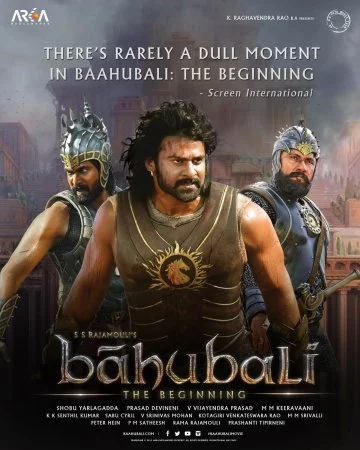

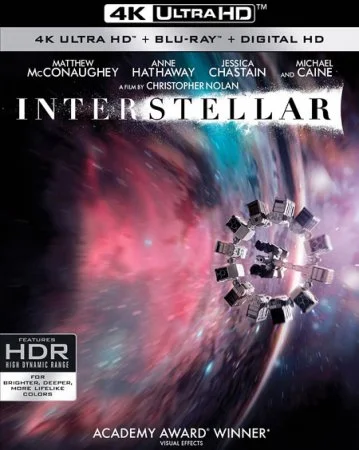



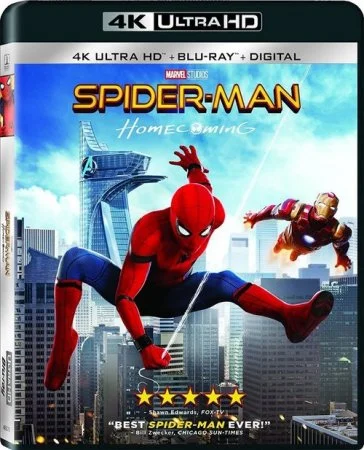
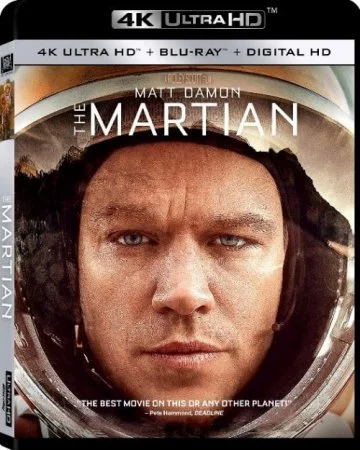
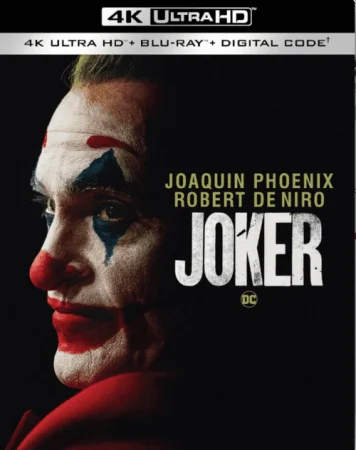
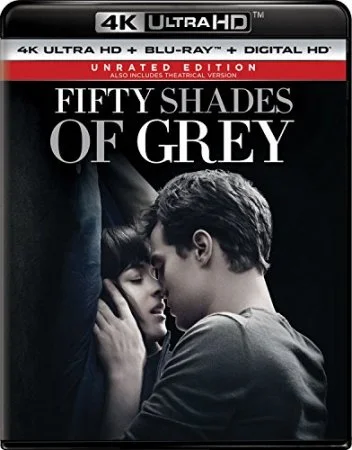


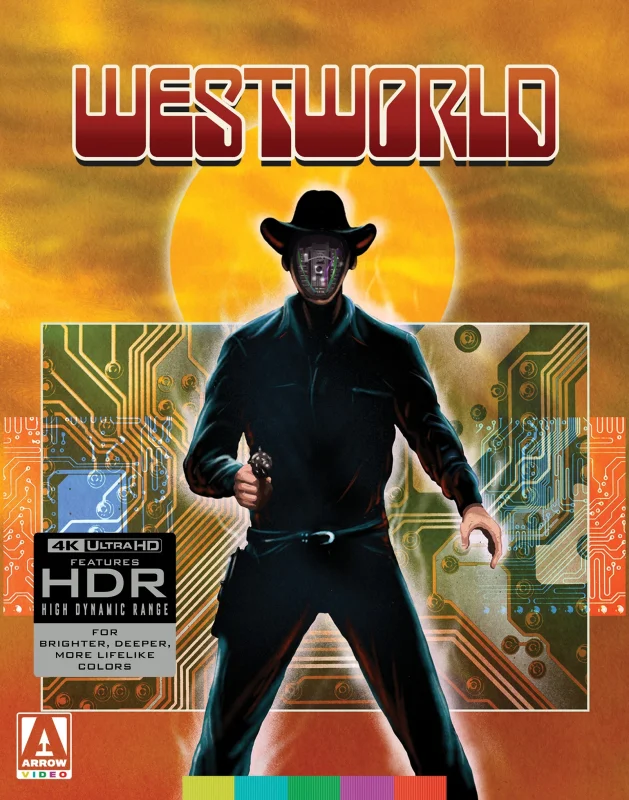
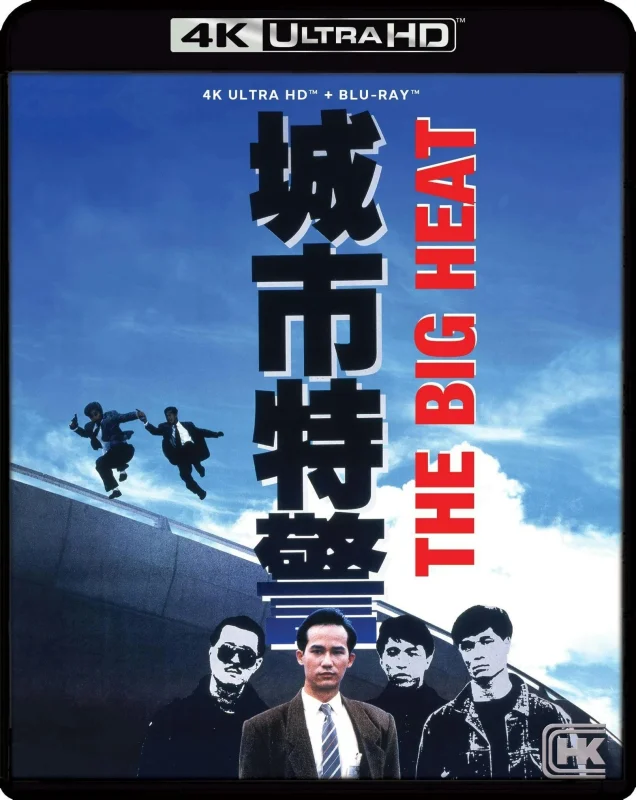
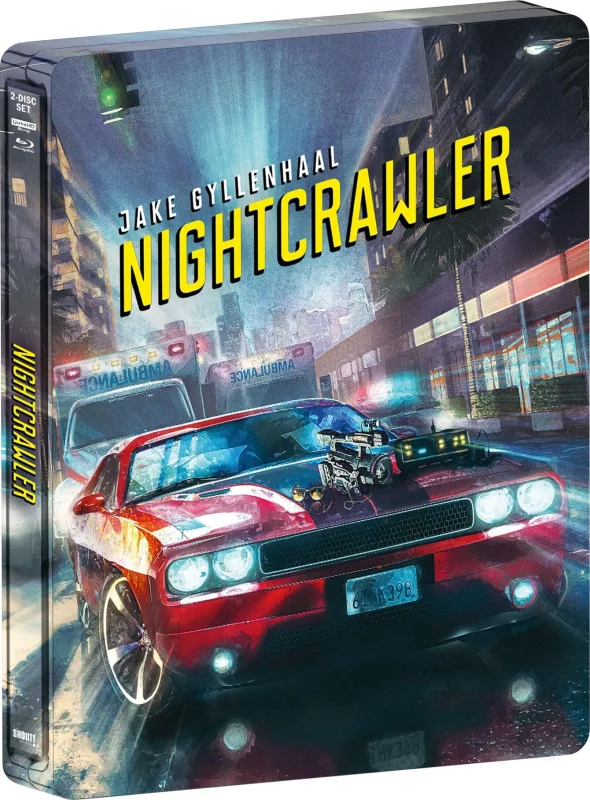






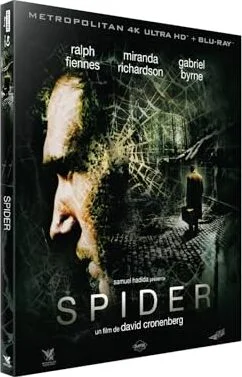
 Like
Like Don't Like
Don't Like